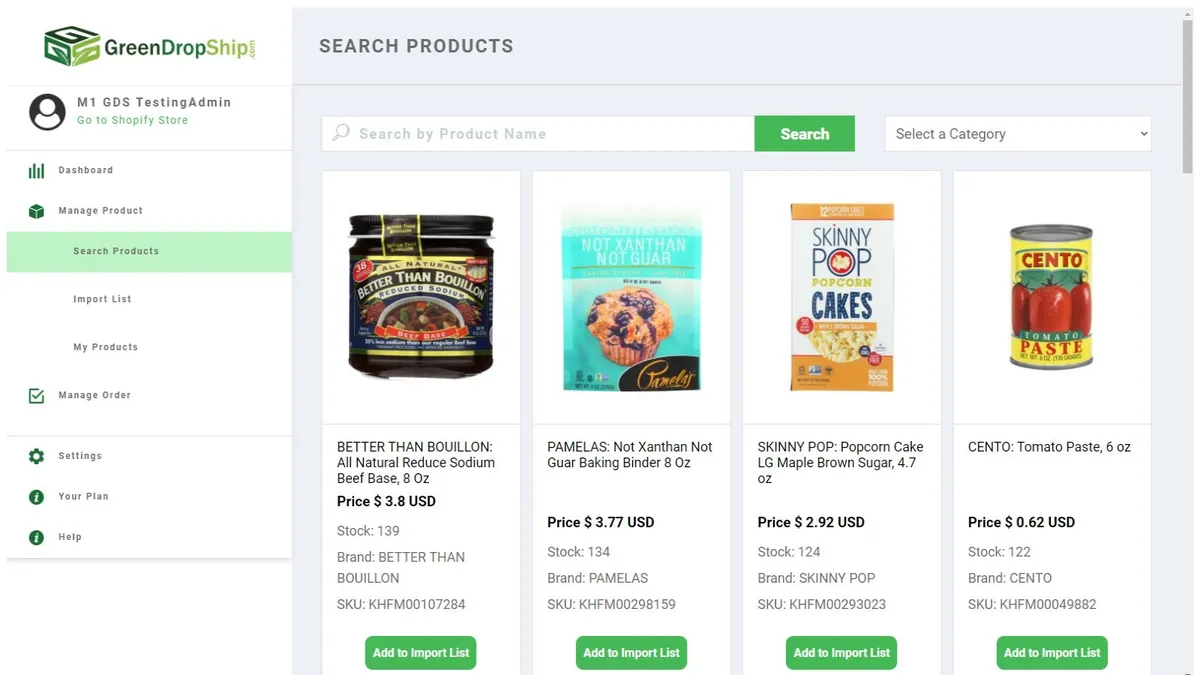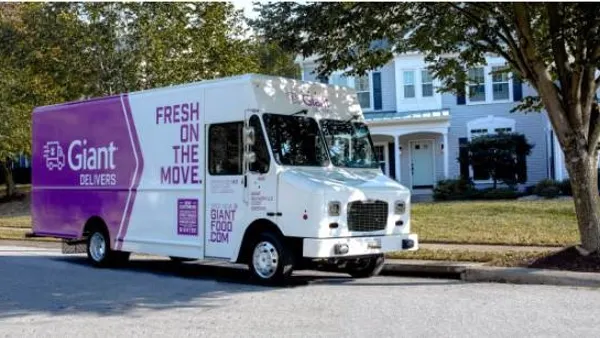Dive Brief:
- Popular online hosting platform Shopify now offers a grocery marketplace for merchants through an app by supplier GreenDropShip, according to a press release.
- GreenDropShip’s app provides product listings, pricing and fulfillment for more than 20,000 natural and organic products, including food and beverages along with vitamins, supplements, baby products and household supplies.
- This is the first grocery app available to Shopify’s more than 1.7 million merchant sellers.
Dive Insight:
GreenDropShip’s app is a nod to online grocery’s next-level growth over the past year and a bet that merchants will want to add food, beverages and consumables to their storefronts. Shopify signed up hundreds of thousands of new merchants for its e-commerce hosting platform and services in 2020 as bricks migrated to clicks during the pandemic.
Now, those merchants can add or begin selling groceries. GreenDropShip’s assortment includes brand names like Earth’s Best, Beyond Meat and Bulletproof Coffee. The app lets sellers customize their online catalog and offers high-resolution product imagery along with updated stock levels and pricing information. Merchants pay an annual membership fee of $150 and are charged wholesale prices.
Shopify already promotes hosting services for online food retailers, so the new app could operate as a marketplace option for small grocers to expand their assortment or as a way for nonfood sellers to diversify their mix.
Founded in 2006, Shopify has in recent years branched out from its web development platform to offer payment processing, lending, shipping and other services for businesses. The company’s app store includes more than 5,000 apps.
Shopify merchants may be enticed by the growth of online grocery shopping over the past year. But with consumers migrating back to stores, the channel is losing some steam. According to Brick Meets Click, online grocery sales declined from $9.3 billion in January to $8 billion in February. Ship-to-home sales during that same period declined from $2.2 billion to $1.8 billion.











